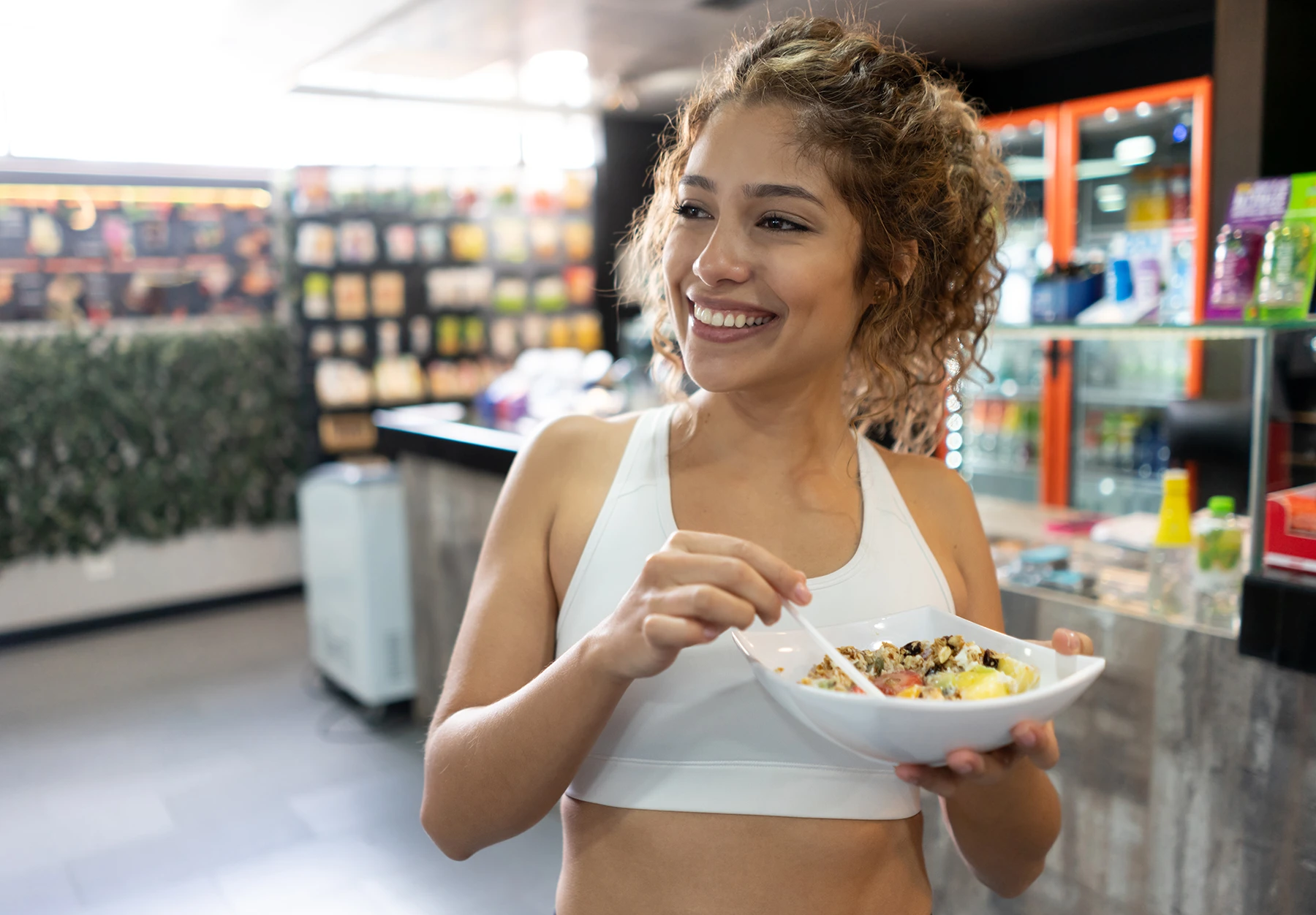How to Avoid and Treat Constipation

Constipation is common. That’s why there’s an entire drugstore aisle devoted to laxatives. There are many reasons you may get constipated regularly, including certain gastrointestinal conditions, slower movement of the colon and pelvic floor dysfunction. Plus, your diet can contribute to or help you avoid or treat constipation.
When it comes to regular bowel movements, what’s considered normal?
There’s a lot of variability in “normal,” and we as a society don’t talk about this enough. Normal is a full range, from stooling three times a day to three times a week (every other day).
If you consistently have fewer than three bowel movements per week (especially if the stools are hard and difficult to pass), you might be constipated. Going less than three times a week is called slow transit constipation. Normal transit constipation occurs when you stool at a normal frequency, but the stools are hard. Stools can also be hard to pass, including straining and a feeling of incomplete evacuation.
All of these forms of constipation should be addressed.
Being out of your usual routine and environment can also trigger constipation. If you usually go to the bathroom in the morning after a cup of coffee but have an early flight and miss your window, it can sometimes start a cycle of not going. You also probably eat differently and more indulgently when you’re not at home (read: lower in fiber, higher in fat and sugar), which can also contribute to changes in your bowel movements.
Finally, traveling itself is dehydrating — less fluids on hand and dry airplanes are a difficult combo. I remind my patients to preempt this by hydrating in advance and taking a gentle daily laxative with them on vacation starting the day of travel.
In addition, some medications and surgery with anesthesia can contribute to constipation. If you’re taking a medication like this — either in the short term or regularly — you have to be diligent about preventing and counteracting constipation. In these cases, I recommend taking MiraLAX or magnesium. In some cases, especially when taking opiates long-term, you may require prescription medications to avoid constipation.
Rarely can you eat something rich in fiber to clean you out when you are already backed up. At that point, a stronger regimen or prescription medications are usually needed.
What’s the best way to prevent or treat constipation?
Once you are already backed up, you are a little ‘behind the eight-ball’ and may need more intervention to overcome the backup than what would be required to just keep the “traffic” flowing.
In general, there are three things to do every day to avoid developing hard stools and treat constipation:
- Eat enough fiber.
- Stay hydrated.
- Move more.
Fiber: The biggest driver of constipation is not enough dietary fiber, which is found only in vegetables, fruit, whole grains, nuts and seeds. General recommendations are 25 to 30 grams of fiber daily. But, that’s low-balling it.
Plus, we need a balance of soluble and insoluble fiber to keep things moving. Soluble fiber bulks up stool, while insoluble fiber helps move food through the digestive tract.
Foods high in soluble fiber:
- whole oats/oat bran/oatmeal
- beans
- barley
- flaxseed
- berries
- soybeans
- bananas
- oranges
- apples
- carrots
- legumes
- brussels sprouts
Foods high in insoluble fiber:
- peas
- okra
- turnips
- rye seeds
- nuts
- whole wheat
- whole grains
- bran
- brown rice
- skins of produce
Some fiber-rich foods have been studied to help manage constipation: kiwi, papaya and flax seed. While I don’t regularly recommend the use of non-nutritive sweeteners, inulin (found in sugar-free items) can cause diarrhea, which may be helpful if you’re already constipated.
Hydration: Staying hydrated is important for all health, but especially for keeping your bowels moving. Your colon’s entire job is to finish absorbing water. If you are dehydrated, it’s going to do its job and absorb more water, slowing your bowels down and making your stool harder. Sadly, you can’t overcompensate. If you drink a lot of water, more than you would need, you will just pee it out. So, you have to stay hydrated throughout the day.
Movement: Regular exercise can help move food through the large intestine, which can help you stay regular. This can be as easy as walking, biking, running and/or swimming daily.
If you’re eating a high-fiber diet, drinking enough fluids throughout the day and staying active — yet still experience frequent constipation — see your primary care physician to rule out a GI motility issue and to review your current medications.
Written by Morgan Allyn Sendzischew Shane, M.D., a gastroenterologist and director of the University of Miami Health System’s Comprehensive Women’s Health Alliance.
UHealth’s Comprehensive Women’s Health Alliance provides specialized care for women’s health at all ages. Call 855-3-4-WOMEN (96636) or request an appointment online.
Edited by Dana Kantrowitz, a regular contributor for UHealth’s news service.
Tags: Comprehensive Women's Health Alliance, Dr. Morgan Allyn Sendzischew Shane, gastroenterology, Miami gastroenterologist
